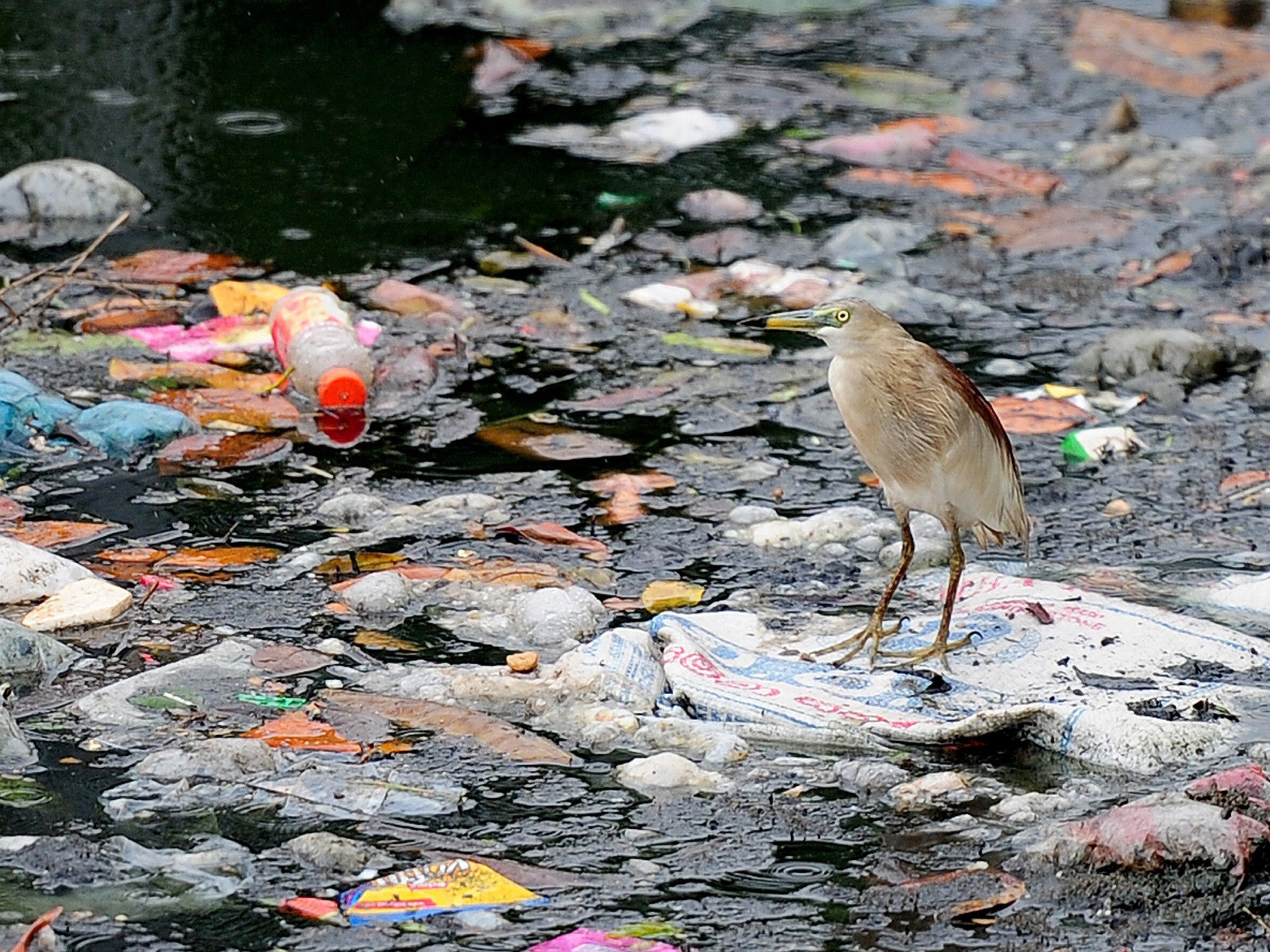Sea birds' taste for plastic traced to compound smell they associate with food
Plastic waste in the ocean emits an aroma that tricks birds into believing it will provide a nutritious and healthy meal

Your support helps us to tell the story
This election is still a dead heat, according to most polls. In a fight with such wafer-thin margins, we need reporters on the ground talking to the people Trump and Harris are courting. Your support allows us to keep sending journalists to the story.
The Independent is trusted by 27 million Americans from across the entire political spectrum every month. Unlike many other quality news outlets, we choose not to lock you out of our reporting and analysis with paywalls. But quality journalism must still be paid for.
Help us keep bring these critical stories to light. Your support makes all the difference.
Sea birds gobble up plastic because it has a smell that reminds them of food, scientists have discovered.
Plastic debris poses a serious environmental threat to many kinds of marine life, including fish, turtles and birds.
But until now the reason why some sea birds have such a voracious appetite for the stuff has been a mystery.
The new research shows that plastic waste in the ocean emits the aroma of a sulphurous compound certain birds have associated with food for thousands of years.
It effectively tricks them into believing plastic will provide a nutritious and healthy meal.
Among the birds most severely affected by plastic consumption are “tube-nosed” species such as petrels and albatrosses which have a keen sense of smell.
In some cases, the birds have been found with bellies full of plastic.
US lead researcher Matthew Savoca, from the University of California at Davis (UC Davis), said: “It's important to consider the organism's point of view in questions like this.
“Animals usually have a reason for the decisions they make. If we want to truly understand why animals are eating plastic in the ocean, we have to think about how animals find food.”
As part of the study the scientists anchored mesh bags containing plastic beads into the ocean at Monterey Bay and Bodega Bay off the coast of California.
The beads were made of the three most common types of plastic debris, high-density polyethylene, low-density polyethylene and poly-propylene.
After three weeks the bags were collected and the beads analysed by flavour and smell experts at UC Davis's Institute for Wine and Food Science.
The tests confirmed that after a period of time in sea water the plastic reeked of the sulphur compound dimethyle sulphide, or DMS. The chemical was emitted by marine algae growing on the surface of the beads.
Previous research had shown that DMS is released when algae is eaten by animals such as krill, small crustaceans which are a favourite food of seabirds.
For the birds, the smell of DMS is like a dinner gong telling them where to find a meal.
Seabirds that track the scent of DMS to find prey are six times more likely to eat plastic than those which do not, the study published in the journal Science Advances showed.
Co-author Professor Gabrielle Nevitt, also from UC Davis, said: “Species that don't receive lot of attention, like petrels and some species of shearwaters, are likely to be impacted by plastic ingestion.
“These species nest in underground burrows, which are hard to study, so they are often overlooked.
“Yet, based on their foraging strategy, this study shows they're actually consuming a lot of plastic and are particularly vulnerable to marine debris.”
Press Association
Subscribe to Independent Premium to bookmark this article
Want to bookmark your favourite articles and stories to read or reference later? Start your Independent Premium subscription today.
Join our commenting forum
Join thought-provoking conversations, follow other Independent readers and see their replies
Comments